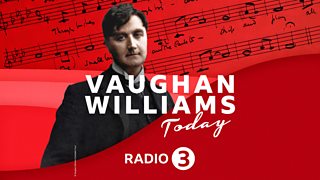
A Sussex Childhood
Donald Macleod explores the life of English composer Ruth Gipps. A celebrated child pianist, at the age of eight she won a prize for writing a piece for piano, The Fairy Shoemaker.
Donald Macleod explores the life of English composer Ruth Gipps. A celebrated child pianist, her career as a composer began at age eight, when she won a prize for her piano piece The Fairy Shoemaker.
Ruth Gipps was born in Bexhill-on-Sea in 1921. Her Swiss-born mother was an accomplished pianist and, recognising her daughterβs aptitude, taught her piano from an early age. Gipps was four years old when she gave her first public performance, at Grotrian Hall in London. It was from that moment on, she said later, that she knew without a shadow of a doubt, that playing the piano was her job and that she wanted to be a composer.
A highly gifted and versatile musician, on 25th March 1945, Gipps took part in a public concert as the soloist in Glazunovβs Piano Concerto before rejoining the woodwind section of the City of Birmingham Orchestra as an oboist for the premiere of her first symphony. Four more symphonies were to follow. But a troublesome injury to her hand, which she had sustained in childhood, brought her career as a concert pianist to an end in the 1950s. By this stage she had achieved some notable successes as a composer. The recipient of several composition prizes, an early high point was the selection of her orchestral work βKnight in Armourβ by Sir Henry Wood for the Last Night of the Proms broadcast in 1942.
Awarded a doctorate in music in 1947, Gipps held teaching posts at Londonβs Trinity College of Music, the Royal College of Music and Kingston Polytechnic and did terms as Chair of both the Composersβ Guild and the newly founded British Music Information Centre. Thereβs little doubt though that Gipps faced considerable gender discrimination in several of the fields in which she excelled. On discovering her enjoyment of conducting, she overcame this by founding two orchestras, the London Repertoire Orchestra in 1955, and then the Chanticleer Orchestra.
A composition pupil of Vaughan Williams, Gipps defined her music as, βa follow-on from her teacher, Bliss and Walton, the three giants of British music since the Second World War.β While all these composers can be heard in her music, her music has its own distinctive and original qualities.
Publicly outspoken, Gipps remained firmly anti-modernist. She regarded 12-tone music, serial music, electronic music and avant-garde music as utter rubbish. From the late 1950s the musical establishment felt her music was out of step with the times, and they bypassed her work. She did have some admirers, including Sir Arthur Bliss, whom she had first met in 1942, who continued to support and admire her music but in general it fell to her own resourcefulness to get her music heard, arranging performances, which she would then conduct with her own orchestras.
Across the week Donald Macleod is joined by Victoria Rowe, the keeper of Gippsβ archive and her daughter-in-law. Together they build a picture of Gipps as a child performer, a young student, an educator, a conductor and a composer. The series features specially recorded material from the ΒιΆΉΤΌΕΔβs performing groups, including Gippsβ second, and fourth symphonies.
By the time she was ten, Ruth Gipps was a seasoned concert pianist, with six years' experience under her belt. Music includes her piano concerto, which she dedicated to her mother, and a complete performance of her quintet, written for the unusual combination of oboe, clarinet, violin, viola and cello.
The Fairy Shoemaker
Duncan Honeybourne (piano)
The Kelpie of Corrievreckan Op. 5b
Peter Cigleris, clarinet
Duncan Honeybourne, piano
Quintet Op. 16
Gareth Hulse, oboe
Peter Cigleris, clarinet
John Mills, violin
Lydia Lowndes-Northcott, viola
Bozidar Vukotic, cello
Members of the Tippett Quartet
Piano Concerto in G minor Op. 34
I. Allegro moderato
Murray MacLachlan, piano
Royal Liverpool Philharmonic Orchestra
Charles Peebles, conductor
Produced by Johannah Smith
Last on
More episodes
Previous
You are at the first episode
Music Played
-
![]()
Ruth Gipps
The Fairy Shoemaker
Performer: Duncan Honeybourne.- PRIMA FACIE RECORDS.
- PRIMA FACIE.
- 1.
-
![]()
Ruth Gipps
The Kelpie of Corrievreckan, Op 5b
Performer: Peter Cigleris. Performer: Duncan Honeybourne.- SOMM : ---.
- SOMM.
- 1.
-
![]()
Ruth Gipps
Quintet, Op 16 for oboe, clarinet, violin, viola and cello
Performer: Gareth Hulse. Performer: Peter Cigleris. Performer: John Mills. Performer: Lydia Lowndes-Northcott. Performer: Bozidar Vukotic.- SOMM : ---.
- SOMM.
- 1.
-
![]()
Ruth Gipps
Piano Concerto, Op 34 (1st mvt)
Performer: Murray McLachlan. Orchestra: Royal Liverpool Philharmonic Orchestra. Conductor: Charles Peebles.- SOMM : SOMM0273.
- SOMM.
- 12.
Broadcasts
- Mon 8 Mar 2021 12:00ΒιΆΉΤΌΕΔ Radio 3
- Tue 16 Aug 2022 13:00ΒιΆΉΤΌΕΔ Radio 3
Vaughan Williams Today
Beethoven Unleashed β the box set
What was really wrong with Beethoven?
Composers A to Z
Who knew? Five eye-opening stories from Composer of the Week
Five reasons why we love Parry's Jerusalem
What is the strange power of Jerusalem which makes strong men weep?
A man out of time β why Parry's music and ideas were at odds with his image...
The composer of Jerusalem was very far from the conservative figure his image suggests.
Composer Help Page
Find resources and contacts for composers from within the classical music industry.






